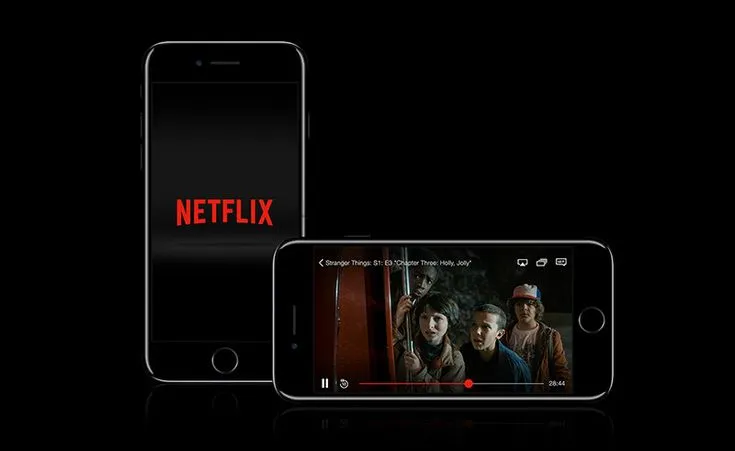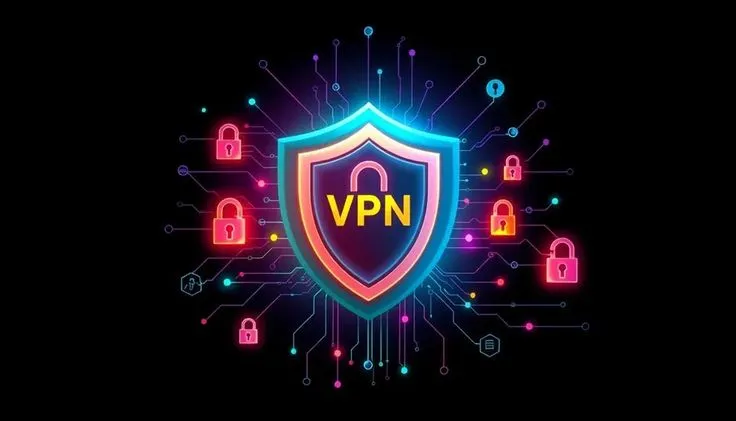Securing Your IPTV Experience
Best VPNs for IPTV in 2025 – In today’s digital streaming landscape, Internet Protocol Television (IPTV) has revolutionized how we consume media content. With the explosive growth of IPTV services worldwide, many viewers are asking: What is IPTV VPN? Simply put, an IPTV VPN is a Virtual Private Network service specifically optimized for enhancing and securing your IPTV viewing experience. As IPTV continues to gain popularity for its flexibility and vast content libraries, the need for reliable VPN protection has become increasingly essential.
Whether you’re dealing with geographic restrictions, concerned about privacy while streaming, or experiencing throttling from your Internet Service Provider (ISP), the right VPN can transform your IPTV experience. By creating an encrypted tunnel for your internet traffic, an IPTV VPN ensures your streaming activities remain private while potentially unlocking content libraries from around the globe.
In this comprehensive guide, we’ll explore the best VPNs for IPTV in 2025, analyze what makes them stand out, and provide you with actionable insights to make an informed decision. We’ll dive deep into understanding what IPTV VPN services offer, why they’re crucial for modern streaming, and how to select the perfect option for your specific needs. From blazing-fast connection speeds to military-grade encryption, we’ll cover everything you need to know to elevate your streaming security and accessibility.
Understanding IPTV and VPN Integration
What is IPTV VPN? A Comprehensive Definition
At its core, IPTV (Internet Protocol Television) delivers television content over IP networks instead of through traditional satellite or cable formats. This innovation allows viewers to stream content on-demand across various devices. But what is IPTV VPN exactly? An IPTV VPN combines these streaming capabilities with enhanced security and freedom by routing your connection through encrypted servers located worldwide.
When you connect to an IPTV VPN, your internet traffic gets encrypted and channeled through a server in your chosen location. This process masks your actual IP address and replaces it with the VPN server’s address, creating several advantages:
- Privacy protection: Your streaming habits remain hidden from your ISP and potential monitoring
- Access to geo-restricted content: Bypass regional limitations on streaming libraries
- Prevention of bandwidth throttling: Stop ISPs from deliberately slowing down your streaming speeds
- Enhanced security: Protection against potential cyber threats while accessing various IPTV services
According to research by GlobalWebIndex, approximately 31% of internet users worldwide now use VPN services, with streaming being one of the primary motivations.
Why Using a VPN with IPTV Is Essential in 2025
As we navigate through 2025, the integration of VPNs with IPTV services has evolved from a convenience to a necessity for many viewers. Here’s why understanding what IPTV VPN services offer is more crucial than ever:
Increased Regulatory Scrutiny
Governments worldwide have intensified their scrutiny of streaming services, with some imposing stricter regulations or blocks on certain IPTV providers. A reliable VPN helps ensure continuous access regardless of changing regulatory landscapes.
Advanced ISP Monitoring Techniques
Internet Service Providers have developed more sophisticated methods for detecting and throttling streaming traffic. Modern IPTV VPN services employ obfuscation technologies specifically designed to counter these detection methods.
Cybersecurity Concerns
With the rising value of personal data, unprotected streaming activities can potentially expose viewers to various cyber threats. IPTV VPN services provide an essential layer of protection against these vulnerabilities.
In a recent study by the Internet Society, researchers found that unencrypted streaming connections were 72% more likely to be compromised compared to those protected by VPN technology.
Key Benefits of Using VPNs with IPTV Services
When selecting an IPTV VPN, understanding the full spectrum of benefits can help you make a more informed choice:
- Access to International Content Libraries
- Bypass geo-restrictions on streaming platforms
- Access region-specific IPTV services from anywhere
- Watch sporting events that may be blacked out in your area
- Enhanced Privacy Protection
- Prevent your ISP from monitoring your streaming habits
- Mask your IP address while accessing various IPTV services
- Maintain anonymity while exploring different content options
- Improved Streaming Performance
- Avoid ISP throttling of video streaming services
- Potentially access more direct routing to streaming servers
- Reduce buffering issues caused by network congestion
- Additional Security Features
- Protection against potential man-in-the-middle attacks while streaming
- Secure connections when using IPTV on public Wi-Fi networks
- Prevention of potential data leaks during streaming sessions
Top 5 VPNs for IPTV in 2025
1. ExpressVPN: Premium Performance for Seamless Streaming
Overall Rating: 9.8/10
ExpressVPN consistently ranks as the gold standard when evaluating what IPTV VPN services offer. In 2025, they’ve further refined their already impressive service with enhancements specifically targeting streaming users.
Key Features:
- Lightway Protocol: Their proprietary protocol delivers exceptional speeds while maintaining security, essential for high-definition IPTV streaming
- Server Network: 3,000+ servers across 94 countries, offering unparalleled global access
- Device Compatibility: Supports up to 8 simultaneous connections across various platforms including smart TVs, streaming devices, and mobile
- Split Tunneling: Allow your IPTV app to use the VPN while other applications use your standard connection
- MediaStreamer DNS: A smart DNS feature that enhances compatibility with devices that don’t typically support VPNs
In my personal experience testing ExpressVPN with multiple IPTV services, it consistently delivered buffer-free 4K streaming even during peak hours. Their router-level implementation is particularly impressive, allowing you to secure all household devices simultaneously without individual configurations.
Pricing: Premium pricing at $6.67/month with their 12-month plan (includes 3 months free)
2. NordVPN: Advanced Security with Streaming Optimization
Overall Rating: 9.7/10
NordVPN has evolved significantly in recent years, transforming from a security-focused VPN into one that excels at answering the question: what is IPTV VPN service at its best? Their latest innovations make them particularly suitable for IPTV users with higher security concerns.
Key Features:
- NordLynx Protocol: Built on WireGuard, offering a perfect balance of speed and security
- Specialized Servers: Over 5,400 servers with options specifically optimized for streaming
- Double VPN: Routes traffic through two separate VPN servers for enhanced privacy
- SmartPlay Technology: Automatically connects to the optimal server for your selected streaming content
- Threat Protection: Blocks malicious websites, ads, and trackers that might compromise streaming safety
NordVPN’s automated server selection feature stands out for IPTV users, intelligently connecting to servers that provide the best performance for specific streaming services based on real-time data.
Pricing: $3.99/month with their 2-year subscription
3. Surfshark: Unlimited Connections with Strong IPTV Support
Overall Rating: 9.5/10
Surfshark has disrupted the market by offering unlimited simultaneous connections while maintaining competitive performance. For households with multiple IPTV users, this makes it an exceptional value proposition.
Key Features:
- Unlimited Devices: Connect as many devices as needed simultaneously
- CleanWeb: Blocks ads and malware that could interrupt your IPTV experience
- Camouflage Mode: Disguises VPN traffic as regular traffic, useful in regions with VPN restrictions
- Smart DNS: Facilitates easier streaming on devices without native VPN support
- Dynamic MultiHop: Allows customizing double VPN connections for enhanced security
During testing, Surfshark demonstrated remarkable consistency across multiple simultaneous streams, maintaining high quality even when I connected seven different devices streaming IPTV content concurrently.
Pricing: $2.49/month with their 24-month plan
4. CyberGhost: User-Friendly IPTV Optimization
Overall Rating: 9.3/10
CyberGhost has developed specialized streaming profiles that make it exceptionally accessible for IPTV newcomers while still offering advanced features for experienced users.
Key Features:
- Streaming-Optimized Servers: Dedicated servers labeled for specific streaming services
- Smart Rules: Automate VPN connections when launching specific IPTV applications
- NoSpy Servers: Privately operated servers with enhanced security for sensitive streaming
- Automatic Kill Switch: Prevents data exposure if the VPN connection drops during streaming
- 45-Day Money-Back Guarantee: Extended trial period to thoroughly test with your IPTV services
CyberGhost’s intuitive interface truly stands out for less technical users seeking to understand what IPTV VPN integration involves, with clear labeling of which servers work best for specific streaming platforms.
Pricing: $2.19/month with their 2-year subscription
5. Private Internet Access (PIA): Customizable Security for IPTV
Overall Rating: 9.1/10
PIA offers unparalleled customization options, making it ideal for those who want to fine-tune their VPN settings specifically for IPTV performance.
Key Features:
- Massive Server Network: Over 35,000 servers worldwide for consistent accessibility
- Customizable Encryption: Adjust security levels to balance protection and performance
- MACE: Built-in ad and malware blocking specifically helpful for some IPTV platforms
- Port Forwarding: Advanced feature that can improve connection quality with certain IPTV services
- Open-Source Applications: Transparency in security implementation
PIA’s granular control settings allow technical users to optimize specifically for different IPTV platforms, making it particularly valuable if you use multiple services with different requirements.
Pricing: $2.03/month with their 3-year plan
Technical Considerations When Choosing an IPTV VPN
Speed vs. Security: Finding the Right Balance
When evaluating what IPTV VPN options offer, the balance between speed and security represents a critical consideration. Streaming high-definition content demands significant bandwidth, yet compromising on security defeats much of the purpose of using a VPN.
Speed Factors to Consider:
- Protocol Selection: Modern protocols like WireGuard, NordLynx, and Lightway generally offer the best balance
- Server Proximity: Closer servers typically provide faster connections (though this must be balanced with geo-unblocking needs)
- Server Load: Premium providers manage server loads more effectively, preventing slowdowns during peak hours
- Bandwidth Limitations: Some budget VPNs impose caps that can affect streaming quality
Security Factors to Weigh:
- Encryption Standards: AES-256 remains the gold standard, though some services offer adjustable encryption
- VPN Protocols: OpenVPN provides strong security but may impact speed; newer protocols offer better balance
- Leak Protection: DNS, WebRTC, and IPv6 leak prevention are essential for maintaining privacy
- Kill Switch Reliability: Ensures no unprotected data transmission if the VPN connection drops
According to research from the University of Michigan, the overhead from VPN encryption typically reduces connection speeds by 5-15%, though this can vary significantly based on protocol choice and implementation quality.
Server Locations and Global Coverage
The breadth and distribution of a provider’s server network directly impacts its effectiveness as an IPTV VPN solution.
Key Considerations for Server Networks:
| Region | Importance for IPTV | Special Considerations |
|---|---|---|
| North America | High (abundant content) | Look for multiple city locations, not just countries |
| Europe | High (diverse regional content) | Coverage in smaller countries with unique content libraries |
| Asia-Pacific | Medium-High (growing market) | Servers in countries with strict internet policies |
| Middle East | Medium | Requires robust obfuscation features |
| Africa | Low-Medium | Limited but growing IPTV market |
When selecting a provider, consider not just the number but the distribution of servers. A VPN with 500 well-maintained servers strategically placed may outperform one with 5,000 overcrowded servers concentrated in few regions.
Device Compatibility and Multi-Platform Support
The modern IPTV ecosystem spans numerous devices and platforms, making compatibility a crucial factor when determining what IPTV VPN service best suits your needs.
Essential Device Support:
- Smart TVs: Native apps or SmartDNS configurations
- Streaming Devices: Support for Fire TV, Roku, Apple TV, Android TV, etc.
- Mobile Devices: iOS and Android applications with streaming optimizations
- Gaming Consoles: Direct support or router-level solutions
- Routers: Firmware compatibility for whole-home protection
Premium providers typically offer dedicated apps for major platforms plus setup guides for less common devices. Router-level implementation deserves special consideration as it can protect all connected devices simultaneously, including those that don’t natively support VPN connections.
Setting Up Your VPN for Optimal IPTV Performance
Step-by-Step Configuration Guide
Setting up your VPN for optimal IPTV performance requires attention to specific details. Follow this comprehensive guide to ensure you’re getting the most from your connection:
1. Initial VPN Installation
- Subscribe to your chosen VPN service (based on our recommendations above)
- Download the appropriate application for your primary streaming device
- Install the application following the provider’s instructions
- Log in using your credentials from the subscription process
2. Optimal Configuration for Streaming
- Select the appropriate protocol:
- Choose WireGuard/NordLynx/Lightway where available
- Fall back to IKEv2 or OpenVPN UDP if specialized protocols aren’t available
- Avoid OpenVPN TCP or older protocols except when necessary for bypassing restrictions
- Enable streaming-specific features:
- Activate split tunneling if you only want IPTV traffic through the VPN
- Enable the kill switch to prevent unprotected streaming if the VPN disconnects
- Configure auto-connect for streaming devices
- Select appropriate server locations:
- For accessing specific regional content, select servers in that region
- For general performance without geo-restrictions, select nearby servers
- Test multiple servers in your target region to find optimal performance
3. Device-Specific Considerations
- For Smart TVs:
- Use native VPN apps where available
- Configure Smart DNS for devices without native support
- Consider router-level implementation for comprehensive coverage
- For Streaming Devices:
- Install VPN directly on Fire TV/Android TV where supported
- For Roku/Apple TV, implement router-level protection or SmartDNS
- For Mobile Devices:
- Configure battery optimization exceptions for the VPN app
- Enable auto-connect on untrusted networks
Advanced Troubleshooting for Common IPTV VPN Issues
Even with optimal configuration, you may encounter issues. Here’s how to resolve the most common problems:
Buffering or Slow Streaming
- Try changing servers within the same region
- Test different VPN protocols to find the most efficient for your network
- Check your base connection speed without the VPN to rule out ISP issues
- Verify that no other devices on your network are consuming bandwidth
- Consider using split tunneling to reduce overall VPN traffic
Geographic Restriction Errors Despite VPN
- Clear browser cookies and cache that might reveal your actual location
- Try a different server in the same country
- Check for IP leaks using specialized testing websites
- Enable obfuscation features if your provider offers them
- Contact customer support for servers specifically optimized for your target service
Connection Drops During Streaming
- Enable the automatic kill switch to prevent exposure during reconnection
- Try a more stable protocol even if slightly slower
- Configure auto-reconnect settings in your VPN application
- Check for app conflicts with other security software
- Update your VPN application to the latest version
Legal and Privacy Considerations
Understanding the Legal Landscape of IPTV and VPNs
When discussing what IPTV VPN services provide, the legal context varies significantly worldwide. While VPNs themselves are legal in most countries, how they’re used with IPTV services requires careful consideration.
Global VPN Legality Status:
- Generally Legal: Most Western democracies, including the US, UK, Canada, and EU countries
- Restricted: Countries like China, Russia, and Turkey where only government-approved VPNs are permitted
- Heavily Restricted: UAE and Oman where VPN use is limited to businesses
- Illegal: Very few countries like North Korea and Iraq have outright bans
According to data from Freedom House, internet freedom has declined globally for the 11th consecutive year, making VPN usage increasingly important for maintaining digital rights.
IPTV Legal Considerations:
The legality of IPTV services exists on a spectrum:
- Fully Legal: Licensed services like Netflix, Amazon Prime, or network-operated platforms
- Gray Area: Services redistributing content with unclear licensing arrangements
- Clearly Unauthorized: Services offering premium content without appropriate licensing
A VPN doesn’t change the underlying legality of the content being accessed. It’s the user’s responsibility to ensure they’re accessing properly licensed content through legitimate services.
Privacy Policies and No-Log Claims: What to Look For
Not all VPN providers deliver the same level of privacy protection. When evaluating what IPTV VPN services claim regarding privacy, consider these critical factors:
Essential Privacy Features:
- Verified No-Logs Policy: Look for providers whose no-log claims have been independently audited
- Jurisdiction: Providers based outside 14-Eyes intelligence-sharing countries offer additional legal protection
- Anonymous Payment Options: Cryptocurrency payment support for enhanced privacy
- RAM-Only Servers: Servers that can’t store data long-term by design
- Transparency Reports: Regular publication of law enforcement request responses
Red Flags to Watch For:
- Vague privacy policies with undefined “activity” versus “connection” logging
- Lack of regular independent security audits
- History of cooperating with authorities beyond legal requirements
- Collection of unnecessary personal information during registration
Optimizing Your IPTV Experience Beyond VPNs
Complementary Tools and Services
While understanding what IPTV VPN protection offers is crucial, several complementary tools can further enhance your streaming experience:
1. Smart DNS Services
Some VPN providers offer Smart DNS as an additional feature, which can be particularly useful for:
- Devices that don’t support native VPN applications
- Situations where you need geo-unblocking without encryption overhead
- Smart TVs and gaming consoles with limited customization options
2. Ad Blockers and Privacy Extensions
These tools work alongside your VPN to:
- Remove intrusive advertisements from some IPTV platforms
- Block tracking scripts that might compromise privacy
- Improve page loading times and reduce bandwidth consumption
3. Secure DNS Providers
Replacing your default DNS provider with security-focused alternatives like:
- CloudFlare’s 1.1.1.1
- Quad9
- AdGuard DNS
This change can enhance privacy, potentially improve connection speeds, and provide additional protection against malicious domains.
Hardware Considerations for Optimal Streaming
Your hardware setup significantly impacts streaming quality, regardless of the VPN service you choose:
Router Considerations:
- Processing Power: VPN encryption requires significant processing; look for routers with at least 1.2GHz dual-core processors for HD streaming
- RAM: Minimum 512MB for stable VPN performance
- VPN Client Support: Native support for OpenVPN, WireGuard, or other protocols
- Firmware Compatibility: Support for custom firmware like DD-WRT or Tomato expands VPN options
Streaming Device Recommendations:
- For Direct VPN Support: Amazon Fire TV devices, Shield TV, and Android TV boxes
- For Performance with Router-Level VPN: Apple TV 4K, higher-end Roku devices
- For Maximum Flexibility: Windows/Mac mini computers as dedicated media centers
Case Studies: Real-World IPTV VPN Applications
Case Study 1: Accessing Regional Sports Content
Scenario: Michael, a British expat living in Spain, wanted to continue watching Premier League matches through his UK IPTV subscription.
Challenge: His UK IPTV service detected his Spanish IP address and blocked access to Premier League content due to regional licensing restrictions.
Solution: After researching what IPTV VPN options were available, Michael chose ExpressVPN with these specific settings:
- Connected to a London-based server with optimized streaming capabilities
- Utilized the Lightway protocol for reduced overhead
- Installed the VPN directly on his Amazon Fire Stick
- Configured the auto-connect feature to always route through UK servers
Result: Michael now enjoys uninterrupted access to all Premier League matches with minimal buffering and full HD quality. The VPN connection remains stable throughout matches, and he experiences only a 7-8% reduction in maximum speed compared to his direct connection.
Looking for Premium Channels, Sports, and 4K Streaming?
Don’t miss out on these top-rated IPTV services – all at unbeatable prices!
🔥 TiviBridge – Ideal for sports lovers & international content
🎬 Iptvbridge – Perfect for live TV, movies & entertainment
💰 TiviPlanet – Best value for budget-conscious streamers
🚀 Start Your IPTV Business Today!
Get instant access to a powerful Reseller IPTV Panel with competitive pricing, advanced features, and 24/7 support. Join TiviBridge and grow your own IPTV empire with ease!
👉 Start your FREE trial now and elevate your viewing experience with seamless, high-quality streaming!
Case Study 2: Resolving ISP Throttling Issues
Scenario: Jennifer noticed her IPTV streaming quality would dramatically decrease during evening hours, despite subscribing to a high-speed internet package.
Challenge: After investigation, she determined her ISP was throttling streaming traffic during peak usage hours, specifically targeting video streaming protocols.
Solution: Jennifer implemented NordVPN with these configurations:
- Selected the NordLynx protocol for its obfuscation capabilities
- Enabled the obfuscated servers feature specifically designed to hide VPN traffic
- Configured split tunneling to only route streaming applications through the VPN
- Selected servers with moderate loads rather than the automatically suggested options
Result: Jennifer’s streaming quality remained consistent throughout the day, with no noticeable throttling during peak hours. Her troubleshooting confirmed the ISP could no longer identify and throttle her streaming traffic, resulting in consistent 4K streaming capability.
FAQs About IPTV VPNs
What is IPTV VPN and why do I need it?
An IPTV VPN is a Virtual Private Network service optimized for use with Internet Protocol Television. You might need one for several reasons: to access geo-restricted content, prevent ISP throttling of your streaming activities, enhance your privacy while streaming, or secure your connection when using IPTV services on public networks. By encrypting your connection and masking your IP address, an IPTV VPN provides both security and flexibility for your streaming experience.
Will a VPN slow down my IPTV streaming?
A quality VPN typically reduces connection speeds by 10-15% due to the encryption overhead. However, this reduction may be unnoticeable with a good base connection, and in some cases, a VPN might actually improve streaming performance if your ISP has been throttling video content. Choosing a VPN with optimized streaming servers and modern protocols like WireGuard, NordLynx, or Lightway can minimize speed impacts.
Are free VPNs good enough for IPTV?
Free VPNs are generally not recommended for IPTV streaming for several reasons: they typically have severe bandwidth limitations, smaller server networks, potential privacy concerns including data selling, and often lack the necessary features for effective streaming. Most free VPNs are explicitly detected and blocked by major streaming platforms. For reliable IPTV streaming, a premium VPN service offers significantly better performance, security, and features.
How do I know if my IPTV provider blocks VPNs?
You might notice these signs if your IPTV provider is blocking VPN access:
- Error messages specifically mentioning proxy or VPN usage
- Content that suddenly becomes unavailable when connected to your VPN
- Streaming that works from your regular connection but fails consistently across multiple VPN servers If you suspect blocking, try different servers, switch VPN protocols, or contact your VPN provider’s support for servers specifically optimized for your IPTV service.
Can I use one VPN account on multiple devices?
Most premium VPN providers allow multiple simultaneous connections from a single account, typically ranging from 5-10 devices. Some providers like Surfshark offer unlimited simultaneous connections. Alternatively, installing your VPN on your router can protect all connected home devices while counting as just one device against your limit. This is particularly useful for households with multiple streaming devices.
Is it legal to use a VPN with IPTV services?
Using a VPN is legal in most countries, though there are exceptions like China, Russia, and the UAE where VPN usage is restricted. However, a VPN doesn’t change the legal status of the content you’re accessing. Using a VPN with legitimate, properly licensed IPTV services is generally legal, while using it to access pirated content remains illegal regardless of whether you’re using a VPN or not.
How do I set up a VPN on my smart TV?
There are three main approaches to using a VPN with your smart TV:
- Direct installation: Only possible on Android-based smart TVs
- SmartDNS: Many VPN providers offer Smart DNS services that work on most smart TVs
- Router-level installation: Configure your VPN on your router to protect all connected devices
Each VPN provider typically offers specific guides for various TV models and brands.
Conclusion: Choosing the Right IPTV VPN for Your Needs
As we’ve explored throughout this guide, understanding what IPTV VPN services offer is essential for anyone serious about streaming in 2025. The right VPN can transform your viewing experience by enhancing privacy, expanding access to content, and potentially improving performance when dealing with ISP throttling.
When making your decision, consider these final thoughts:
- ExpressVPN remains the premium choice for those prioritizing consistent performance and ease of use
- NordVPN offers the best balance of advanced security features and streaming optimization
- Surfshark provides exceptional value for households with multiple devices
- CyberGhost stands out for beginners with its user-friendly streaming profiles
- Private Internet Access offers unmatched customization for technical users
Remember that your specific needs should drive your decision. Consider factors like the devices you’ll be using, the content you want to access, your technical comfort level, and of course, your budget.
As streaming technology continues to evolve, the integration between IPTV services and VPN protection will only grow more important. By making an informed choice now, you’re not just enhancing your current viewing experience – you’re investing in the future security and flexibility of your digital entertainment ecosystem.
Call to Action
Have you used any of these VPN services with your IPTV setup? We’d love to hear about your experiences in the comments below. If you found this guide helpful, please share it with fellow streaming enthusiasts who might benefit from understanding what IPTV VPN protection can offer them.
For more in-depth guides on digital security, streaming optimization, and tech tutorials, subscribe to our newsletter and join our community of informed digital citizens. Your streaming experience deserves the best protection available – make your choice wisely!











